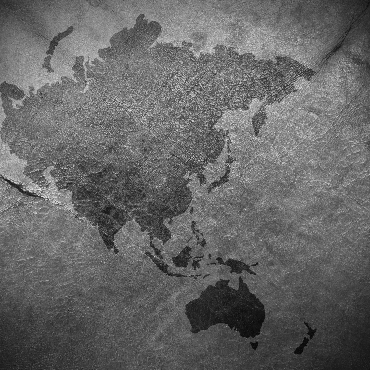THE PROBLEM WITH CHINESE VACCINES
In the global effort to develop, produce, and distribute COVID-19 vaccines, some shots are proving to be more reliable than others. Take Israel and the Seychelles, the nations with the two highest vaccination rates in the world. Jerusalem relied heavily on the Pfizer-BioNTech jab, while the Seychelles primarily used Sinopharm, a Chinese-made vaccine. While Israel's daily confirmed coronavirus cases has plummeted to 4.95 per million, the Seychelles has 716 cases per million. Unfortunately, the Seychelles are hardly alone. Mongolia, Bahrain, and Chile also find themselves in the awkward spot of having over 50% of their populations vaccinated, but also being in the top 10 countries with the worst COVID-19 outbreaks – after having relied on Chinese-origin Sinopharm and Sinovac vaccines. (New York Times, June 22, 2021)
SINO-INDIAN BORDER STANDOFF CONTINUES
A year after last summer's military buildup and skirmishes, tensions along the de facto border between China and India remain high. Indian military and intelligence officials estimate that China's military footprint along the so-called "Line of Actual Control" (LAC) has jumped from 15,000 military personnel a year ago to at least 50,000 currently, deployed under the guise of military exercises. The primary front appears to be Eastern Ladakh, a disputed territory that abuts Kashmir and Tibet. The People's Liberation Army (PLA) has reportedly deployed HQ-9 advanced surface-to-air missile batteries, and the militaries of both countries have also constructed hundreds of insulated structures to support sustained troop deployments during the frigid Himalayan winter. The buildup follows China's earlier decision to withdraw troops from Pangong Lake, another disputed region along the LAC. (Wall Street Journal, July 2, 2021)
BURMA'S JUNTA PUTS AUNG SAN SUU KYI ON TRIAL
In mid-June, Burma's military junta further consolidated its power by putting Aung San Suu Kyi on trial. Suu Kyi, Burma's state councilor and leader of the National League for Democracy (NLD) party, was the face of Burma's slow and complicated democratic transition, but the NLD's electoral successes over the past five years concerned the military, or Tatmadaw, which has long steered Burma's politics.
The charges against Suu Kyi, a Nobel Prize winner, range from illegal walkie-talkie imports and unlicensed radio use to bribery. Junta authorities are also accusing her of violating the colonial-era Official Secrets Act, which carries a maximum prison sentence of 14 years – leaving open the possibility of sidelining Suu Kyi yet again from public life. She was previously kept under house arrest from 1989 to 1995. (Associated Press, June 14, 2021)
NORTH KOREA FACES FOOD CRISIS... AGAIN
In April, North Korean strongman Kim Jong-un warned his countrymen to prepare for an "arduous march," echoing grisly memories of starvation and famine that devastated the Democratic People's Republic of Korea (DPRK) in the 1990s. In June, Kim was even more direct in remarks to North Korean party officials. "The agricultural sector failed to fulfill its grain production plan," he said. All told, the DPRK could face a food shortage in 2021 of up to 1.35 million tons – roughly a fifth of North Korea's total food requirements. The food crisis comes on the heels of Kim's decision to close North Korea's border with China last year over coronavirus concerns, as well as amid ongoing Western sanctions that have constrained Pyongyang's exports. (Wall Street Journal, June 16, 2021)
TOKYO, MANILA HOLD FIRST JOINT AIR FORCE EXERCISES
In early July, Japan and the Philippines announced plans for joint air force exercises, a first for the two militaries. Tokyo and Manila signed a defense agreement in 2015 that has led to 17 joint naval drills, but this month's air force training signals deepening relations between the two nations. The drills centered on humanitarian assistance and disaster relief; specifically, Japan and the Philippines simulated the delivery of relief goods to isolated areas using a Japanese C-130H cargo plane. Notably, the training took place at Clark Air Force Base, less than 200 miles away from Scarborough Shoal, a land feature that is now hotly contested between Manila and Beijing. Although residing within Manilla's exclusive economic zone, China has effectively controlled Scarborough Shoal since 2012. (Straits Times, July 1, 2021)
Want these sent to your inbox?
Subscribe
Indo-Pacific Monitor No. 18
Related Categories:
Human Rights and Humanitarian Issues; International Economics and Trade; Global Health; China; India; Japan; North Korea; Southeast Asia
